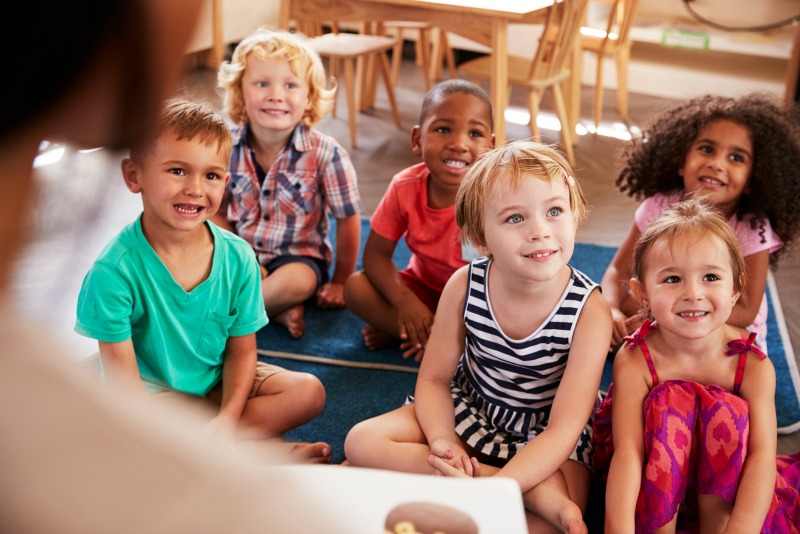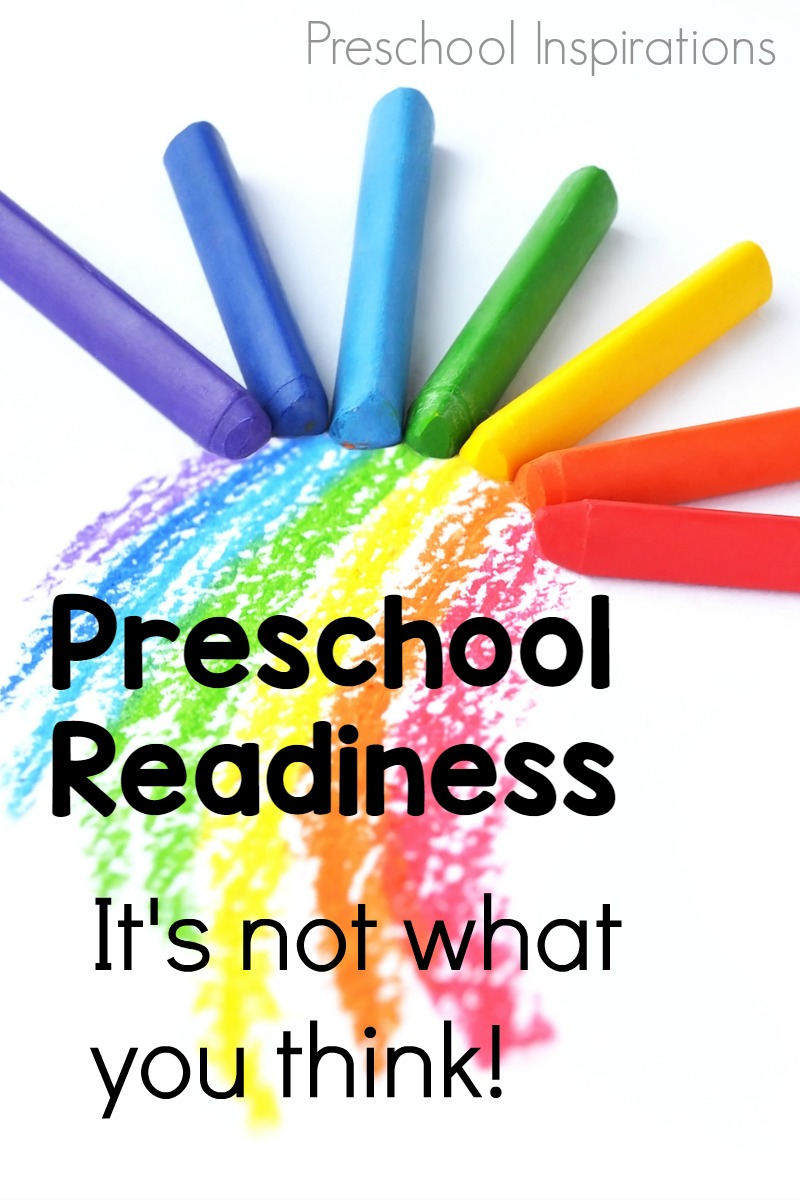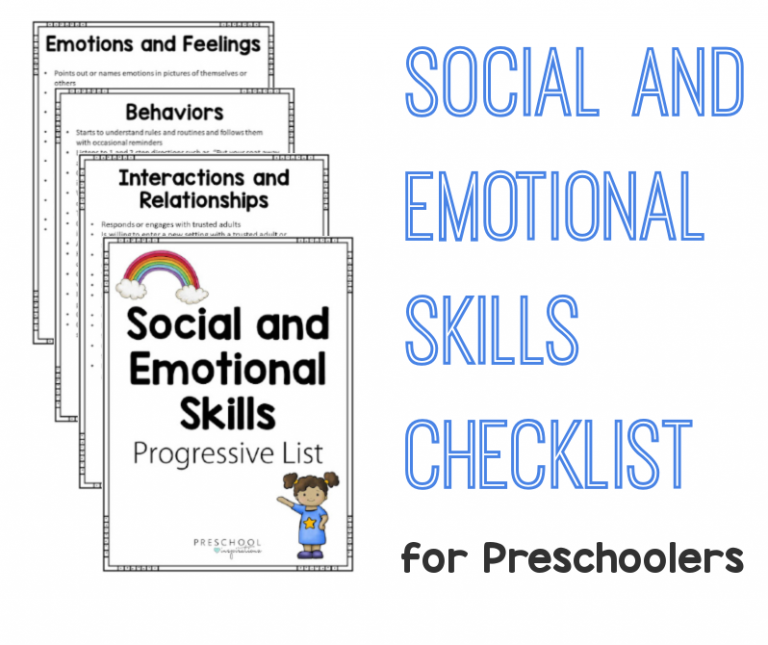Is preschool around the corner? As a veteran preschool teacher, there are some things you should know.
Preschool can be one of the most magical and exciting times in a child’s life. It also helps set the stage for kindergarten and beyond.
Many well-meaning parents have walked through my door and given me a list of what their child already knows: how to spell his name, all of her colors, how to count to 20, and so on. But we’re not really interested in that.
A seasoned teacher knows that these concepts will come easily in due time. We can teach your child colors in two languages and counting by 10s or 2s — all when the time is right.
We want to hear more about your child’s interests, in her self-confidence, and in his ability to cooperate.
The truth is that preschool is not a one-way street. The preschool day starts and ends at a certain time, but learning happens all the time. In the classroom, at home, when you’re at the park for a playdate.
When your child starts preschool, they are learning more than just facts and concepts.
They are adjusting to working in a space of other 3 and 4-year-olds and at the same time learning to follow the rules.
They are learning to take directions from a different adult.
And they are also trying to figure out where they fit in with an entirely new group of people.
To be completely honest, there are lots of other things your child has to learn before I can teach her how to write letters or to make patterns.
Above all, your child has to learn to trust me and to feel safe in our new environment. He has to know he is valued and that he is welcome in my classroom.
Since we are going to do our best to give these tools to your child at school, here are simple ways you can help at home to make an easier transition to preschool.
5 Key Things Preschool Teachers Want You to Know Before Starting Preschool
When it comes to getting your child ready for preschool, these are 5 key things that make a huge difference for starting preschool.
1) A desire to explore: Before a child can learn, he must feel confident enough to discover and explore his environment. This is an innate skill that we are born with, and these moments are vital. Children learn best through play and need opportunities to explore, create, build, and to figure out how things work.
They thrive with windows of time to pretend at the dollhouse, to build with legos, to play outside with sticks and rocks, and to take things apart, again and again. The more children play, the more creativity they develop, and the more they understand how the world works around them.
Children who have lots of experience playing before preschool easily adapt to the environment and become absorbent learners quickly.
2) The ability to follow one and two-step directions: A big part of the preschool day involves listening to the teacher. Teachers often give directions such as, “throw your tissue away,” “put the truck back on the shelf,”or “get your coat and go to the door.”
It is important for children to be able to listen to these instructions and to be able to carry them out. While it might be tempting to do some of these activities for children, they are better off if we use them as learning opportunities.
It is a huge skill for children to follow directions, and sometimes it takes weeks for children to get the hang of it in the classroom setting. Children who are successful at following directions when they enter preschool have a huge advantage over those who do not as they are able to dive into learning activities instead of spending so much time practicing their listening skills.
3) Practice at completing tasks: As a child is playing, he needs to develop the skills to complete a project — or at least the opportunity to.
In our busy world, we are running around doing errands, jumping in the car constantly, and rushing to the next activity. I wish we could put these on hold because children need to be given time to just build a castle out of blocks, to paint a picture at the easel, or to splash in the water table until they have said they are finished.
Take time in the day to put away busyness and allow children the chance to explore and learn at their pace.
Children who have practice completing tasks also have much longer attention spans and have greater abilities to stay focused amidst all the distractions that a group setting brings.
4) The confidence to speak up: There are many times in a preschooler’s day that a child needs to feel confident and secure enough to tell the teacher something.
We want them to come to us and tell us when they need to use the bathroom, when they need help, when they are finished with an activity, or when they accidentally make a spill. Some of us are great at spotting the “potty dance” or sensing that a child needs assistance, but when there are lots of little bodies around, we won’t see everything.
Even a quiet and shy child can quickly build trust with the teacher and become an excellent communicator.
And if this is a struggle for your child, just let us know so we can help create more moments for them to feel comfortable with this.
5) A beginning understanding of empathy: While this is listed last, it is definitely one of the most important traits that all children (and adults) should have.
Empathy is a huge factor in how children build relationships. Children who are empathetic are able to get along better with their peers and treat the children and adults in their environment with respect.
One of my favorite aspects of empathy is that it breeds strong leaders in the preschool classroom. The best way to teach empathy to a child is to role model it for them, to read about it, and to talk about and accept emotions as they come up.
The next time your child cries, let her know that you see that she is very sad. Sometimes it’s scary when she falls, or it is hard when mommy says “not now.”
Children who have had their feelings validated all throughout their lives always stand out as they continually form positive and healthy friendships.
Did you notice that I left out potty training? It was intentional. See why here.
Every child grows and develops at different rates, so some children will exhibit these skills sooner than others. Children with special needs may need extra help developing these skills. If you have any concerns about your child’s development, I recommend talking about them with your child’s pediatrician.
- Rainbow Sensory Bottle - March 3, 2024
- Teaching Neurodivergent Children in Early Childhood Education - January 8, 2024
- Creating Musical Memories: Teaching Music in Preschool - October 6, 2023



I love this, and I agree with each and every one! We had to work on number 4 with our daughter when she started preschool last spring- she speaks up at home but was (unexpectedly) much more reluctant at school. Thank goodness we had an amazing teacher that encouraged her to use her “strong voice” to say what she wanted/needed. I’ll be sharing!
I love that you had such a wonderful teacher with your daughter, Stephanie! Isn’t it so interesting to see how our kids act differently at home compared to with other teachers. It always makes me smile when you visit, and you are so sweet to share!
This is just what I was looking for! There are so many kindergarten readiness articles out there but not much about preparing for preschool. My 4 year old will be attending a half day preschool in the fall and I am quite anxious about how it will go. This list gives me some areas to focus on.
P.S. I love that you didn’t list academic requirements!!
How fun that you and your daughter are preparing for preschool, Ann! I hope your transition goes as smoothly as possible and that it is an enjoyable experience :). Thank you for your wonderful comment!
I love the items you listed! I am a Pre-Kinder teacher for 3 and 4 year olds and the first month we are making friends, learning how to sit, how to take turns, how to listen to a story, learning classmates names, and how to be part of a group of friends. We learn about schedules, structure, hygiene, social skills, how to play and share with others, and many other things. I can’t even begin to teach academics until we have covered the above items as well as many other important things that must come first. Most children have never been away from their parents or played with children other than their siblings. They have no routines or structure in their day. The most important thing I left out is making the children feel safe and comfortable in our classroom. I am very nurturing and make sure they all feel valued and special. I strive to have each child want to come to school and enjoy playing and learning. Once they get comfortable with their environment, teachers, friends, and routines, then we can start with some academics. I do always have to remind parents that all these items are all part of the learning process! I have to reassure them that their child is learning through play! I love teaching pre-k and teaching children how to love school!
Your teaching style sounds so warm and loving, Pat. It truly is amazing how many skills children take in at the beginning of preschool. I think it is so wonderful that you help reassure the parents about how important play-based learning is! It is such a pleasure to have you visit!
Thank you sooooo much. My daughter will be starting preschool in the fall and this made me feel so much better about it. I know kids learn at different rates and you shouldn’t compare but… she has 2 friends that both seem to know their letters better, one is reading already etc. I see how smart my daughter is though and how quick she picks up on things so this has really made me feel a lot better about preschool. Thank you so much.